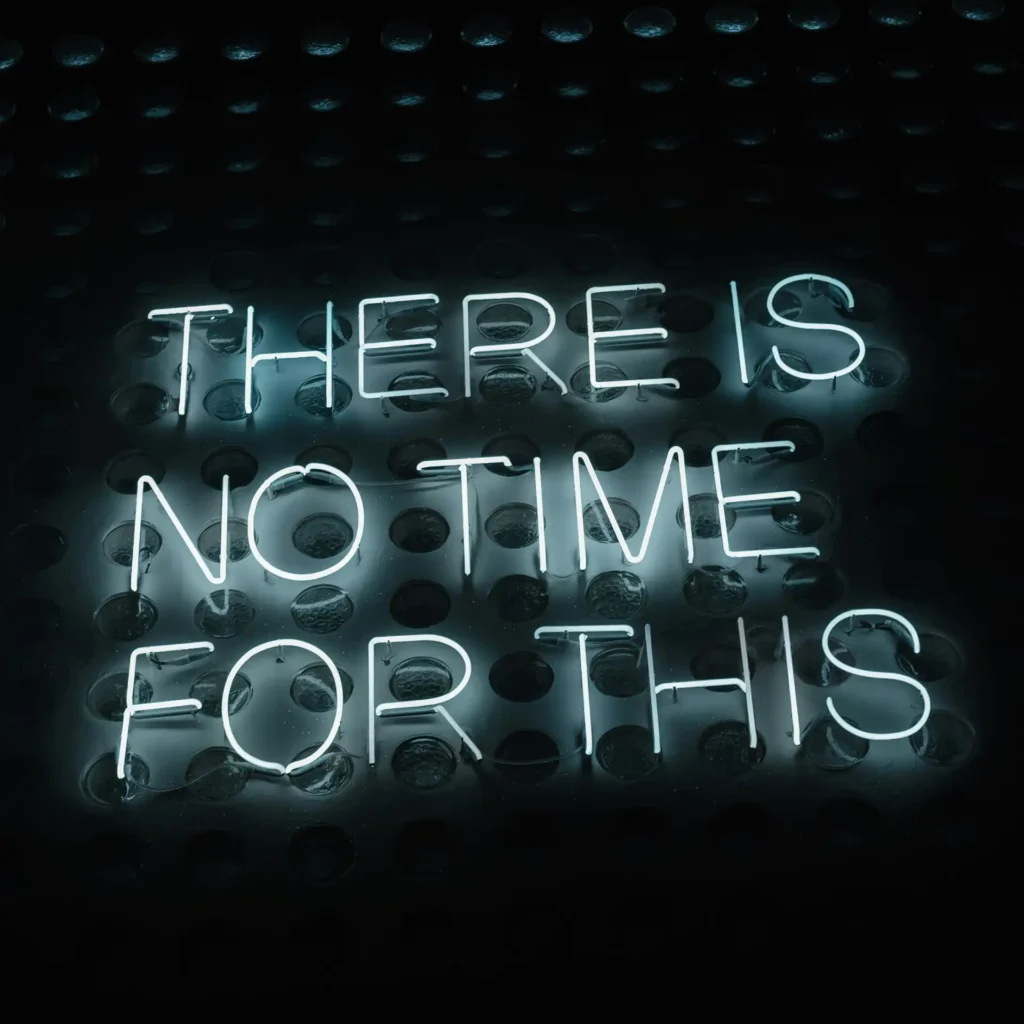
Lessons from the 3rd job: big companies, bigger lessons- my UX journey so far
The third and most recent job I had came with a mix of fresh lessons and some old, familiar challenges that just won’t stop haunting me. I get it- the universe is practically screaming at me to change something, or history will keep repeating itself.
Working in an outsourcing company, navigating large-scale hierarchies, methodologies, and a diverse set of clients and industries, brought an entirely new set of challenges. Here are the key lessons I’ve picked up along the way:
Finding your own pace in a fast-paced world

Photo by Biao Yu on Unsplash
People assume that the bigger the company, the clearer the workflows, team structures, and policies. Maybe in some cases, but from what I- and many fellow UX designers- have experienced, things are far from perfect.
The best approach? Embrace the chaos and start by creating clarity for yourself. You can’t overhaul entire workflows overnight, and no amount of evangelizing design best practices will fix deeply ingrained habits in one workshop. Instead, start small- organize your own work, create a workflow that benefits both you and the people around you (developers, PMs, POs), and take things one step at a time.
Also, don’t say yes too easily. Taking on new challenges is great, but overcommitting will leave you overwhelmed and disappointing the very people you wanted to help. People will be frustrated because you gave your word, and their trust will be harder to regain. Protect your time and energy, and you’ll be more productive.
The art of saying just enough

Photo by Eswaran Arulkumar on Unsplash
As designers, we sometimes feel overlooked, but spamming colleagues with UX best practices won’t magically earn us more influence. Every organization, team, and project is an intricate ecosystem with people juggling multiple responsibilities.
Instead of forcing UX onto people, find the right time, context, and amount of information to share. Frame things in a way that makes sense for your audience- whether it’s stakeholders, developers, or product managers. Use your UX skills for internal communication- keep it clear, relevant, and easy to digest.
Experiment with different approaches; don’t hold on too tightly to a single method just because it worked in a previous project. I remember a time when our Head of Design insisted on running workshops with clients, hoping to extract useful insights. Unfortunately, these sessions often turned into awkward, unproductive meetings- passive participants, awkward silences, and, ultimately, a room full of people unsure of what to say. The atmosphere grew tense, and soon, blame started to circulate for the lack of contribution.
Truth be told, no one actually knew what they wanted. We, as designers, were looking for detailed, thoughtful answers, but the clients weren’t prepared to provide them on the spot. Instead of forcing a failing approach, we should have paused, reevaluated, and adjusted our strategy. A better way would have been to set clear expectations beforehand, guiding participants on what kind of input we needed and how they could prepare. Meetings are far more effective when people have the time and structure to think things through.
Not every conversation needs to happen in a meeting. If discussions aren’t yielding actionable insights, consider alternative methods- maybe the answers already exist in documentation, past research, or informal discussions. And when a meeting is truly necessary, make it purposeful: give people clear prompts, ensure they’re prepared, and if the session still feels like a waste of time, cut it short and try another approach.
Speak up or stay stuck

Photo by Markus Winkler on Unsplash
If something is bothering you at work, address it now, not later. Letting issues pile up leads to resentment and frustration. You don’t have to be confrontational, but you are in this job to think critically and share your perspective- so do it.
It’s easy to make excuses for others- “they’re just having a bad day”- but when someone’s bad day turns into a bad week, month, or year, it’s time to call it out. What’s the worst that can happen? Maybe your concerns go unheard, and you realize this isn’t the right place for you. Or maybe things will start to change, slowly but surely, and you’ll be glad you spoke up.
Not everyone is trying to make your life harder on purpose. People have their own battles- tight deadlines, personal struggles, overloaded schedules. However, having healthy workplace relationships means having tough conversations with empathy and transparency.
For me, truth is a core value. Even when confrontation makes me uncomfortable, I feel it’s my responsibility to speak up, not just for myself but for the people who come after me. Every time I’ve stood my ground or supported a teammate, I’ve felt like I was setting a precedent. Speaking up isn’t just about fixing the present- it’s about shaping a better future for everyone who follows.
Everything is urgent (until you question it)

Photo by Maximalfocus on Unsplash
Ah, the corporate world’s favorite phrases: “We need this like yesterday”, “This is urgent, shouldn’t take you more than a few hours.”, “Please squeeze this for today. It is super urgent. Thanks, you’re the best!”. Urgency has become the norm, often at the expense of quality and sanity.
If I had a penny for every unrealistic deadline thrown my way, I’d probably be retired by now. The trick is learning to push back. Before jumping into panic mode, ask yourself:
- Has this problem already been solved elsewhere?
- Is this truly urgent or just poorly planned?
- Is this even necessary?
If you don’t plan your career, someone else will

Photo by Arno Senoner on Unsplash
There’s a quote from Jim Rohn that sums it up perfectly: “If you don’t design your own life plan, chances are you’ll fall into someone else’s plan. And guess what they may have planned for you? Not much.”
Treat yourself like a top priority. Check in with yourself regularly- what excites you? What frustrates you? Where do you see yourself in the short and long term?- If you don’t take the time to think about these things, you risk waking up one day in a job that drains you.
Have candid conversations with your leads and managers about your goals. Advocate for yourself because no one else will do it for you. And if your current environment isn’t helping you grow (or worse, is holding you back), don’t be afraid to step away and find something better.
Your career is finite. Your energy is finite. If you’re bringing your best to the table, expect nothing less in return.
What about you? Have you faced similar challenges in your UX journey? I’d love to hear your thoughts. The best insights often come from real experiences, and the more we share, the more we grow. After all, if there’s one thing UX has taught me, it’s that nothing gets better in isolation- iteration, feedback, and a bit of collective wisdom make all the difference in design and our careers.




